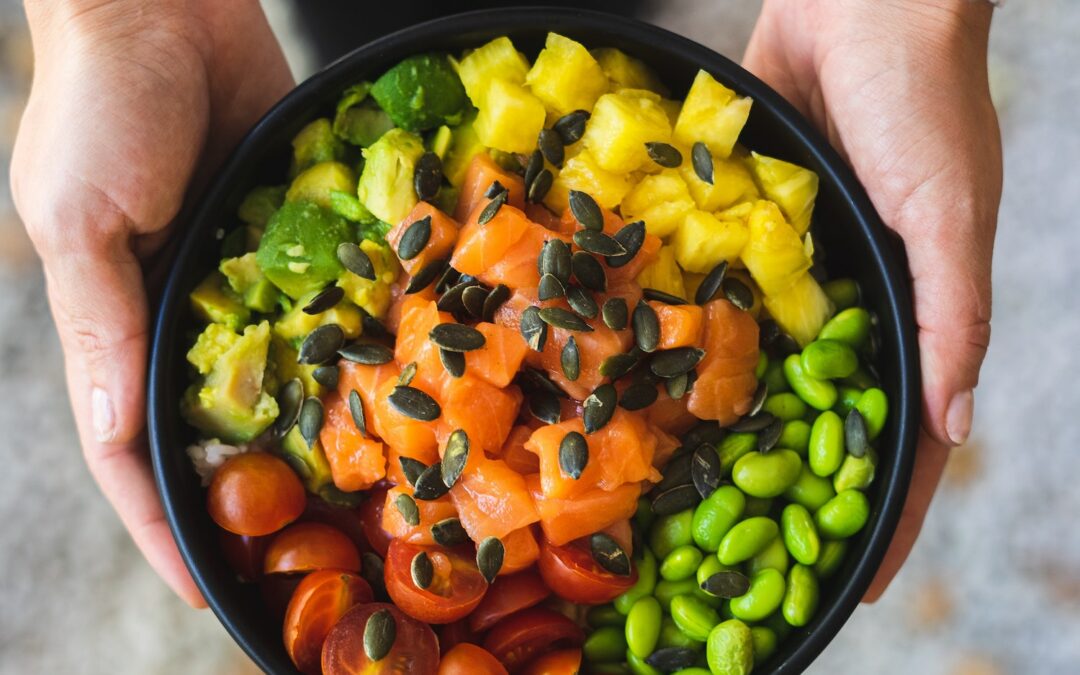Everywhere you look these days you’ll find advice on what to eat and what not to eat. But, there is one thing most people agree on and that is if you don’t eat enough protein you’re going to notice changes in how your body functions.
So, let’s talk about how to know if you’re not getting enough protein, how much protein is recommended versus what is optimal and the best sources of protein on the planet. If you arm yourself with current research and the right information you’ll be able to balance your diet and feel physically better in the process.
Why is protein important?
Protein is one of three macronutrients that are found in all types of food of the human diet. The other two macronutrients are carbohydrates and fats. The human body cannot survive without all three of these macronutrients even for short periods of time because they are needed for growth, development, cellular repair, circulation and energy.
Every part of the human body uses protein to develop, grow and function properly. All of your organs, tissues, hormones and muscles are made from protein. The body needs 20 different amino acids to function properly and protein is made up of a combination of those amino acids. The body can produce 11 of these 20 amino acids on its own, but the other nine, which are called essential amino acids, must come from the protein you eat. In addition, the body cannot store amino acids for later use so you need to replenish them regularly through the food you eat.
Also, studies show that eating adequate amounts of protein has a number of health benefits. It supports you to maintain or lose weight, increases satiety, improves concentration and learning ability, supports muscles and bones, stabilizes blood sugar levels and can reduce brain fog.
7 signs you may not be getting enough protein
- Brittle hair & nails: Protein is essential for healthy hair, skin and nails. If your hair is dull, dry and stringy or your nails are brittle and easily cracking or if your skin is dry no matter what you do this could be an indication that you need to eat more protein.
- Food cravings & constant hunger: protein supplies energy to the body and satiates hunger. If you find yourself needing lots of snacks to get through the day or craving carb-heavy foods then it’s possible your body is telling you it doesn’t have enough energy and is looking for quick fixes. Protein can help curb cravings and satiate appetite.
- Muscle weakness and/or stress fractures: amino acids in protein are crucial for building and maintaining muscle mass and if bone tissue doesn’t have enough protein to maintain stability then fractures can occur.
- Getting sick frequently: Protein boosts the immune system and without enough of it you may experience more frequent illness.
- Mood fluctuations or brain fog: protein supports the brain and its neurotransmitters to regulate moods and to have clarity of thought. If the brain isn’t getting enough protein it is more susceptible to blood sugar imbalances, which causes mood lability and foggy thinking.
- Difficulty losing weight: Protein is known for its role in maintaining muscle mass, building muscle and supporting healthy metabolism. If you’re having trouble losing weight, despite strong efforts, then it’s possible your body isn’t getting adequate amounts of protein.
- Fatigue: Protein is like a slow-burning log on the energy fire, which simply means it provides a steady supply of energy to the body. Protein also balances blood sugar, which supports the body to feel steady energy all day long. If you’re feeling fatigued or are having energy crashes throughout the day then inadequate amounts of protein may be a factor.
How much protein is enough?
The Recommended Dietary Allowance (RDA) for protein is 0.8 grams of protein per kilogram of body weight. So, using this guideline a person who weighs 150 pounds should eat approximately 55 grams of protein per day. The important thing to note on the RDA is that this is the minimal amount of protein you need per day to meet your basic nutritional requirement and to prevent nutritional deficiencies. Also, it is based on animal protein only.
If you are trying to support aging, recovery, hormone balance, mood improvement or body compensation changes then research shows 1.6 grams of protein per kilogram of body weight is more optimal, which is essentially double the RDA. Dr. Gabrielle Lyon, a pioneer in how to optimize muscle and lower your risk for diseases like diabetes, hypertension and Alzheimer’s and wrote the book Forever Strong, recommends that if you are trying to lose weight then consuming 1.0 gram of protein per pound of ideal body weight is optimal for this goal.
To discover your minimal protein intake for your bodyweight that prevents nutrient deficiencies according to the RDA this protein calculator from the USDA is very helpful. It’s important to work with your own doctor to determine what is best for your body.
Animal protein vs. plant-protein
Currently, there is a big push for people to get more of their protein from plant sources versus animal sources. My opinion from a nutritional therapy practitioner standpoint is that if a person is happy with their health, weight, metabolism, hormone status and energy while eating a plant based diet then…good for them! If a person is not happy with those factors of health, then animal protein may be beneficial.
Animal proteins are complete proteins, which means they contain all nine essential amino acids that the body cannot produce on its own. Also, animal protein is a much more efficient way to get protein compared to plant sources. For example, in order to get the same amount of protein in a piece of chicken or fish a person would need to eat approximately 706 calories of peanut butter, which is about 7 tablespoons or almost half-cup. If whole legumes are more palatable a similar equation for lentils would be that about 337 calories or 1.5 cups of lentils is equal to the same amount of protein in 3.5 ounces of fish and about ⅓ the calories. Therefore, from a caloric standpoint alone animal protein is more efficient and desirable for the body. In addition, animal protein sources are nutrient dense in terms of being rich in heme iron, B12 and zinc.
If you’d like to read an in-depth breakdown on plant versus animal protein in terms of health for the body and the planet please refer to the work of Diana Rodgers, a registered dietician and author who writes extensively on this topic on her website Sustainable Dish and breaks things down in this article.
5 simple ways to eat more protein
- Replace cereal with eggs at breakfast
- Indulge in cottage cheese on your salad at lunch
- Throw some grass-fed beef jerky in your bag for a snack
- Choose lean cuts of meat to add to your dinner
- Grab tinned fish for an easy work-lunch protein
A balanced diet that includes all essential amino acids the body needs and provides sustained energy, balanced blood sugar, mental clarity, weight maintenance, balanced hormones and supports healthy aging means eating protein at every meal and snack.
Resources:
https://pubmed.ncbi.nlm.nih.gov/19400750/
https://www.onecommune.com/blog/podcast-avoiding-the-midlife-muscle-crisis-with-dr-gabrielle-lyon
https://www.health.harvard.edu/blog/how-much-protein-do-you-need-every-day-201506188096
https://www.nal.usda.gov/human-nutrition-and-food-safety/dri-calculator


